The Lesser Word - Sanity Restoring Books
 thelesserword
1 year ago
thelesserword
1 year ago
Heading changed for legal and pleasant readings. I just like the word Wunderkammer.
 someotherstranger
1 year ago
someotherstranger
1 year ago
Very very well said, theological differences nonwithstanding of course.
 thelesserword
1 year ago
thelesserword
1 year ago
Thank you, Someother. The soul of America's at stake, but in the end God is our only hope. He will will what He wills for the good of mankind. Sometimes our Father lets His children do what they would will so after getting bitten by some snakes they come running back to heal. On our part, Christians should seek to build their faith to run back to God in spite of being bit by our own sins.
 thelesserword
1 year ago
thelesserword
1 year ago
A criminal solution to male loneliness is used to illustrate the intrinsic disorder of modern man's soul: escorts. Many are the tribes of men who complain for lack of mate, but sin waits at the door. Why doesn't man step outside for a greater sin? Why should a man not for love of God?
 thelesserword
1 year ago
thelesserword
1 year ago
A Cure for Male Loneliness... https://thelesserword.neocities.org/Fireplace-Dialogues/Volume-2/5
 thelesserword
1 year ago
thelesserword
1 year ago
3AM to 6:30AM draft run. Finally figured out what was up with the mobile format. Paragraph styles. Just had to make the font smaller. Sorry 100% zoomers
 thelesserword
1 year ago
thelesserword
1 year ago
There's so much to say about Evolution, particularly the fruits of the Catholic perspective of believing Adam and Eve came from literal animals. Barring my sleep debt, I'd have commented on its fruits, but well that's just reality. Man posing as animals. Darn'd furries leading us to the truth. Hell's staring back, and the Church, as wife, might need to clean the house before that beating comes.

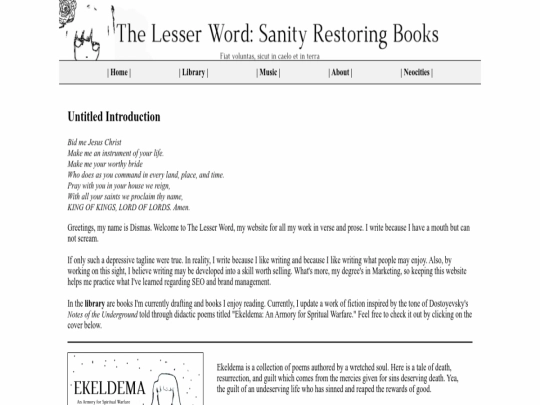
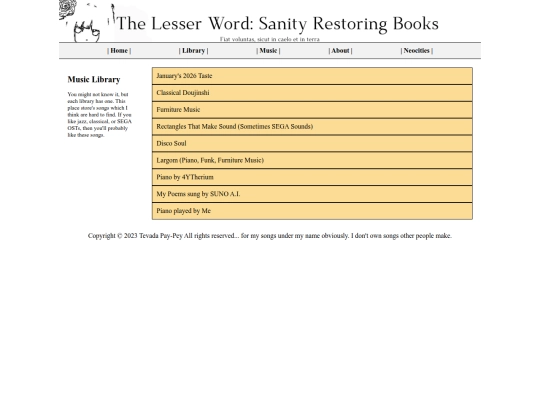
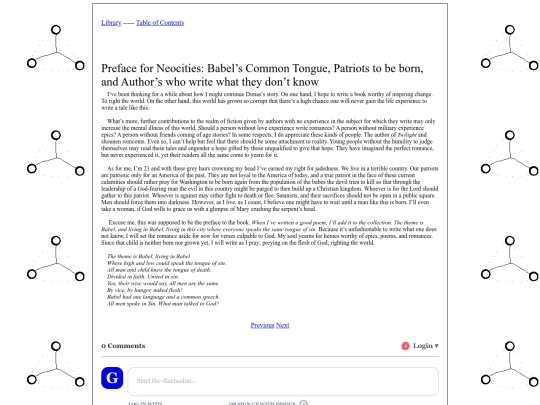
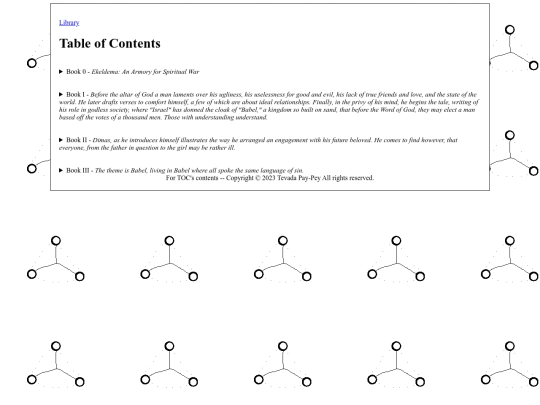
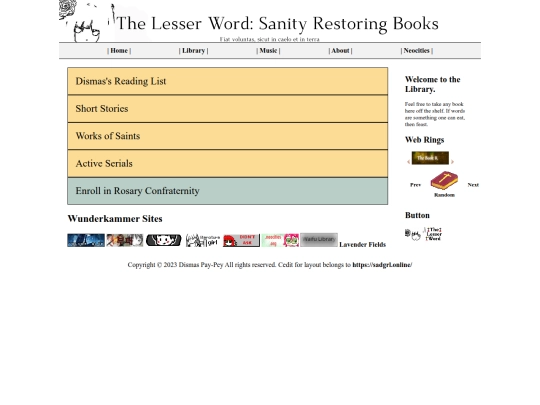
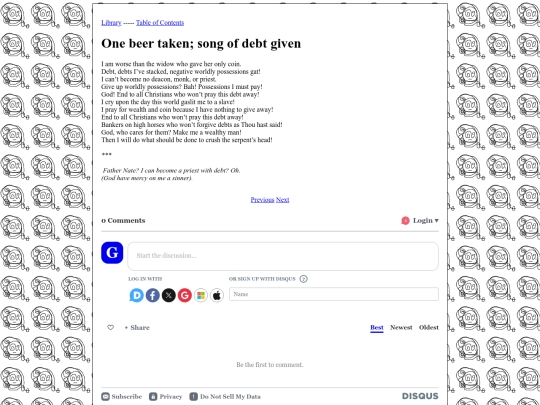

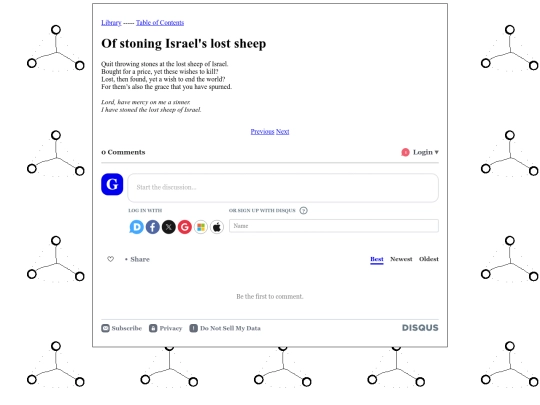
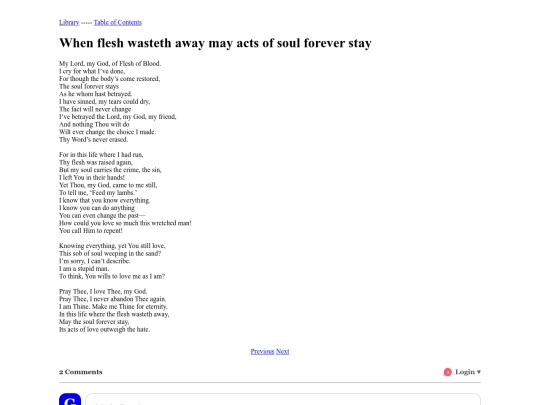
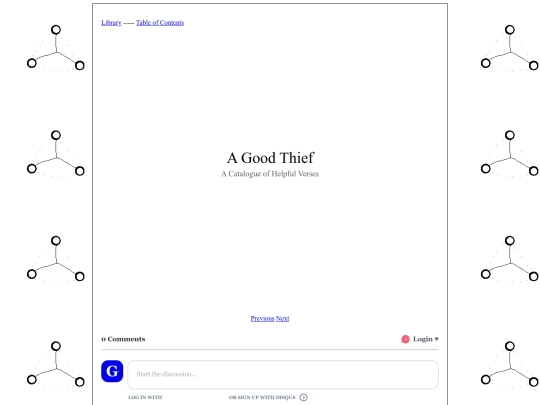


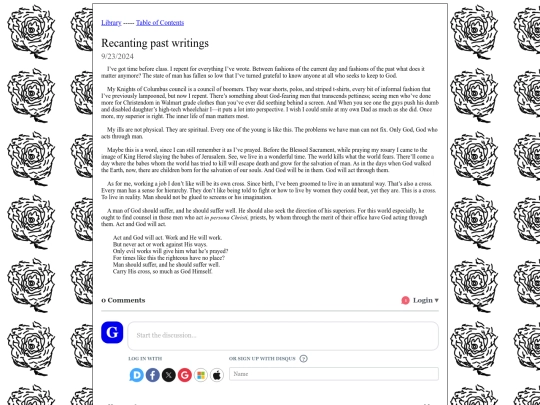
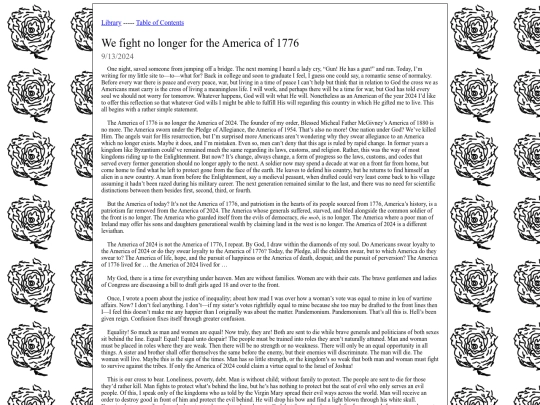
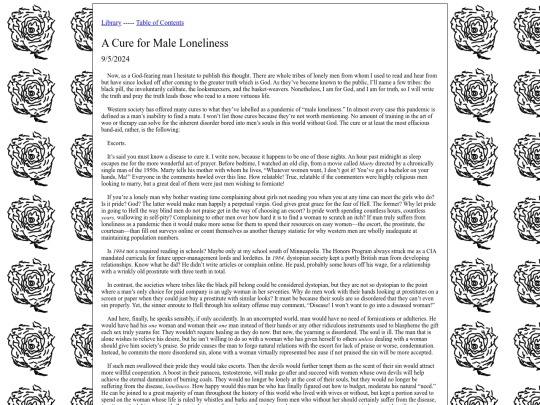
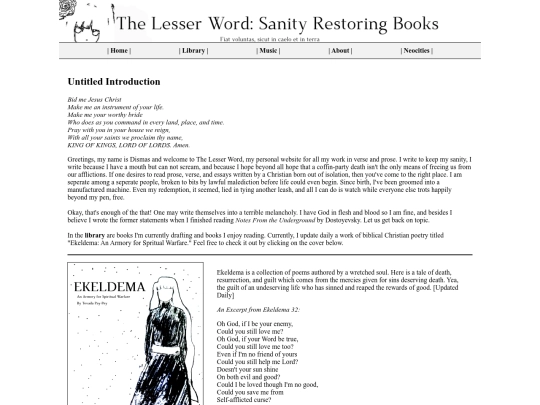















































That excerpt hits so hard
Glad you like it. I'll have to write more commercial books though. Depressing stuff like this is hard to sell, especially when its perspective may only be understood by guys living in 100AD.
Truuue. But whatever you sell, I'm buying